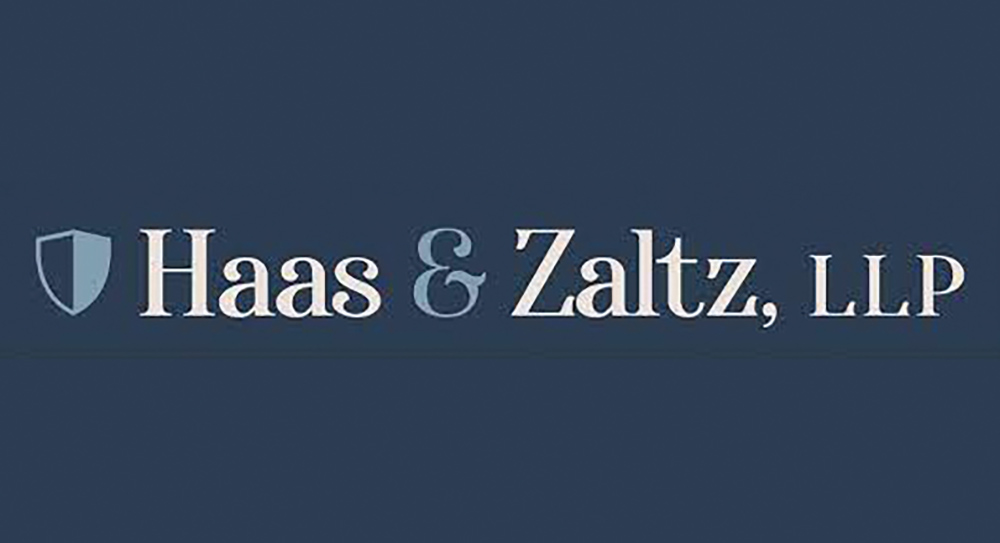
Believe it or not, most people have an estate. That estate might include a big house or a more modest one. An estate can include jewelry, financial securities and even art. The question is, however, what becomes of the estate, or rather, where will it go, once its owner passes?
Emmanuel Haas and Ari Zaltz, of Haas & Zaltz, LLP, are general estate planning attorneys who also specialize in elder care. They say that one of the biggest mistakes people make is waiting too long to make an estate plan.
The Torah addresses halachic issues as they pertain to inheritances, and of course, estate plans, and it provides several halachically approved ways of establishing one. For many of their Orthodox clients, Haas and Zaltz will come up with several provisions when helping them plan their estates and will even provide their clients with a shtar—a halachically legal document. A shtar can ensure that the intent of the person who creates the estate plan will be carried out, without prejudicing his children, who may or may not be “heirs,” at least according to halacha.
Unfortunately, a majority of estates still go through surrogate courts, inviting people to challenge and contest a will on any number of criteria. Even if a will is accepted, another potential area of conflict could be in the accounting, where an appointed executor must marshal the assets and then distribute them according to the terms and conditions as outlined in the will. In order to avoid as much conflict and dispute as possible, Haas and Zaltz advise clients to set up a trust which typically discourages people from going to court.
In addition to making an estate plan, which should include provisions for long-term care, and setting up a trust to protect assets, Haas and Zaltz also advise clients to establish a health care proxy. There are several different types of healthcare proxies, including halachic ones that could require an appointed agent/individual to consult with a rabbinic authority in the event that a serious life and death decision must be made. In any given health care proxy, there are many different options that people may choose, and Haas and Zaltz make sure to discuss any and all options and potential issues with their clients.
“It’s something people want to consider,” Haas cautioned. “People never know what their situation will be.” He said it’s important that one trusts their agent and feels comfortable with them. In preparation, a person should discuss with their appointed agent the overall approach that they want taken should a situation arise.
“Every individual and every family has some kind of need, whether it is a young family with minor children who are concerned about guardianship—which could be the single most important provision in a will—or whether they are a little bit older and have accumulated some assets and have become concerned about the dreaded probate process,” Zaltz said.
By setting up trusts, assets are protected for both parents, while they are still living, and for the children, after the parents pass. In some situations, parents are concerned about the risks associated with leaving a substantial amount of money to an adult child who they fear might be a spendthrift, and a trust can prevent an inheritance from being distributed outright. “Even if a child has significant control over the trust, it would not be vulnerable to creditors or even to marital partners, which may or may not become a problem at some point in the future, should there be a divorce,” Zaltz said.
Ensuring their hard-earned money doesn’t end up in the hands of a child’s ex-spouse is a very realistic concern that parents should consider when planning their estate. Another concern is how to ensure that a spouse’s assets will end up with his or her children and not go to children from a second marriage.
For families that wish to leave money to a child or grandchild with special needs, Haas and Zaltz have emerged as specialists in this particular practice area, dealing with it on a regular basis, carefully planning and drafting solid provisions unique to this circumstance.
Another crucial part of estate planning includes burial arrangements and Haas and Zaltz tell people that those cannot be included in the will since the document is examined long after the burial takes place. Instead, those plans should be clearly communicated to family and loved ones. Because tragedies occur quite suddenly, or because people often don’t want to address such topics during their lifetime, the chevra kadisha or similar organizations will usually step in and make the necessary arrangements. However, this may not be at all what the decedent would have wanted.
While many people do not feel comfortable discussing these topics, Haas and Zaltz want to do what they can to encourage it. “It’s brought down in seforim that if you address these issues, it’s a segulah for arichas yomim,” Zaltz said. Planning ahead makes for a significantly less expensive burial and takes away a lot of stress and anxiety from the family. Not making arrangements can lead to chaos during an extraordinarily difficult process and can lead to unnecessary arguments at the worst possible time.
“There are people who prefer not to discuss it for any number of reasons, but it is certainly something that should be considered, and it happens to everyone. Everyone knows that eventually they will go and that’s the way Hashem created us,” added Haas.
“We’re not the most exciting conversation, and people don’t love addressing the issue in general,” said Zaltz. “We try to make the conversation as easy as possible.”
To learn how to protect you and your family visit www.haaszaltz.com or call 845-425-3900. You can also email them at [email protected]












